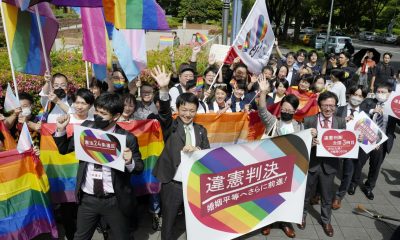Myanmar
Outright International report documents Myanmar junta’s anti-LGBTQ rights abuses
Military overthrew democratically-elected government in 2021

Outright International on Thursday unveiled a report that documented LGBTQ resistance to Myanmar’s coup.
The report — LGBTQ Anti-Coup Resistance in Myanmar” — sheds light on the resistance of the LGBTQ community in Myanmar against the backdrop of military oppression. It documents the alarming effects of violence and impunity the junta perpetrates against LGBTQ people, revealing the harsh realities they face daily.
The report also illustrates how the 2021 coup has abruptly stifled the progress for which LGBTQ human rights activists had been striving, derailing their efforts toward achieving legal reform and fostering social acceptance. The findings underscore the resilience and determination of the LGBTQ community; even in the face of grave adversity, highlighting their unwavering fight for dignity, and rights amid turmoil.
Outright International Asia Regional Coordinator Grace Poore presented the report.
Poore as she took the stage expressed gratitude to all the human rights defenders and members of the LGBTQ community who contributed to the report.
She painted a vivid picture of what it means to be LGBTQ in a time of political turmoil and military dictatorship. Poore emphasized the unique challenges that LGBTQ people in Myanmar face — a context where they are already vulnerable to police bigotry and discrimination. She highlighted the oppressive environment that criminalization laws create, illustrating the profound impact of these societal and legal barriers on the lives of LGBTQ people.
Poore during her presentation emphasized its critical findings, noting the alarming use of sexual and gender-based violence against LGBTQ people in Myanmar. She stressed how these acts of violence are not merely statistics but represent the harsh realities that countless individuals struggling for their rights and dignity face. Poore also called on the international community to take decisive action, stressing the report offers vital recommendations aimed at restoring democracy in Myanmar and safeguarding the rights of all its citizens, including LGBTQ people.
Poore said Outright International interviewed 14 LGBTQ people from 2021-2024: Eight gay men, one bisexual man, two bisexual women, one lesbian, one transgender woman, and one trans man who identifies as a lesbian. She emphasized Outright International worked closely with LGBTQ organizations in Myanmar and along the country’s border with Thailand.
2021 coup toppled democratically-elected government
Myanmar’s military on Feb. 1, 2021, claimed, without any evidence, the results of the country’s election that took place in November 2020 were fraudulent. This unfounded assertion sparked a military coup d’état, leading to the arrest of political leaders who had won the election and the ouster of the democratically-elected government.
The military almost immediately declared a national emergency, igniting widespread protests against the dictatorship. The demonstrators comprised a diverse coalition of university students, workers from unions, everyday citizens, and members of the LGBTQ community. They peacefully demanded the restoration of a civilian government, and evolved into a robust civil disobedience campaign that spread across the country.
Police and security forces used high-powered rifles, rubber bullets, and water cannons to suppress the growing protests. This crackdown resulted in numerous casualties and injuries — an 18-year-old gay man who was shot in the head died. A lesbian and a trans man were also killed during the protests.
Poore said the total number of LGBTQ deaths remains unknown, underscoring the devastating toll of violence on the community during this time of upheaval.
She noted exiled National League for Democracy leaders in April 2021 formed a shadow government, known as the National Unity Government. Poore emphasized years of LGBTQ advocacy played a crucial role in making the National Unity Government more inclusive and supportive of LGBTQ rights.
“There was no objection at all to my sexual orientation,” said Aung Myo Min, the first openly gay man named to a government post. The National Unity Government in April 2021 appointed him as Human Rights Minister. “It’s such a breakthrough. I do not need to hide or stay in the closet as a Cabinet minister. I feel very proud. This is new history for Myanmar.”
The report notes the National Unity Government in September 2021 declared war on the military junta.
The shadow government swiftly mobilized its supporters to join the People’s Defense Force, a move that marked a significant escalation in the resistance. Poore said this widespread mobilization of people transformed the nature of the anti-junta struggle, intensifying the fight against military oppression and reshaping the resistance movement across Myanmar.
The report notes volunteers who joined the People’s Defense Force underwent extensive training to take on various critical roles. They were trained not only for combat but also to conduct intelligence operations and ensure clandestine food and medical supplies. This covert network of support played a vital role in sustaining the resistance, allowing volunteers to effectively challenge the military junta while helping communities survive under harsh conditions.
“Before the coup, the LGBTQ human rights defenders were working to abolish or amend Section 377 of Myanmar Penal Code, a British colonial law that criminalized consensual same-sex intimacy,” noted Poore while presenting the report. “They were pushing for reform of the 1899 Rangoon Police Act that targets trans people and queer men for criminalization and gives police broad, arbitrary powers to enforce the law. Myanmar held public events for Yangon Pride, the International Day against Homophobia, Biphobia, and Transphobia from 2014 to 2020.”
Poore noted the National League for Democracy in its 2020 election platform pledged to eliminate discrimination against LGBTQ people.
The report highlights people — including LGBTQ activists — in Myanmar faced severe charges for their involvement in the resistance. The junta accused them of sedition and acting against the state for participating in peaceful protests, attending protest-related meetings, providing shelter and hiding places for LGBTQ people, and sharing anti-coup information on social media. Any expression of criticism against the dictatorship was also met with harsh consequences, as the military junta targeted those who dared to speak out, further silencing dissent and endangering activists.
Outright International’s report notes the junta has weaponized laws, such as Section 505 of the penal code, and counter-terrorism laws to punish LGBTQ people and others. The report emphasizes these are antiquated laws the junta expanded and strengthened during the coup to wield greater power against those fighting for democracy.
Many LGBTQ individuals in Myanmar after the coup stopped publicly identifying themselves as LGBTQ to protect themselves from military violence.
The report noted an increase in sexual and physical violence, particularly against those who were visibly trans or gay, after the coup. The escalating brutality against them underscores the heightened risks faced by those who could not easily hide their identities, revealing a grim reality for Myanmar’s LGBTQ community during the military regime.
The report details the story of a trans woman, well known for her beauty parlor and her role in organizing anti-junta protests.
Security forces detained her for three days. Officers whipped her with a belt, forcibly cut her hair, stripped her naked, and groped her breasts while she was in custody. They also used pliers to remove her long fingernails.
“In general, the experiences of lesbian, bisexual, and queer women, as well as transgender men, had much lower visibility during the coup,” Poore said while presenting the report.
She explained it was particularly challenging to find information about lesbian, bisexual, and queer women actively involved in the anti-coup resistance and to gather their testimonies about sexual and gender-based violence.
The report also notes the coup forced many LGBTQ organizations in Myanmar to shut down, compelling them to relocate to Thailand to continue their work from exile. This displacement not only disrupted vital support networks but also underscored the harsh reality faced by activists who were now operating under constant threat. These organizations nevertheless remain committed to advocating for LGBTQ rights and to provide assistance to those who are still in Myanmar.
Outright International in its report called on the Myanmar military junta to immediately stop its attacks on civilians, particularly LGBTQ people who are on the frontlines of the resistance.
The report urged companies to halt any trade or business engagements with the junta and its affiliates without delay. It also recommends economic sanctions on junta leaders and increasing support funding for Myanmar’s LGBTQ activists. The report further emphasizes the need for greater engagement with lesbian and queer women’s groups in Myanmar, as well as providing both emergency and long-term resources for LGBTQ people in the country.
The report also highlights the importance of ensuring the effective implementation of reporting and redress mechanisms for LGBTQ people; lesbian, bisexual, and queer women, and other marginalized groups, aiming to protect their rights and dignity in the face of ongoing violence and oppression.
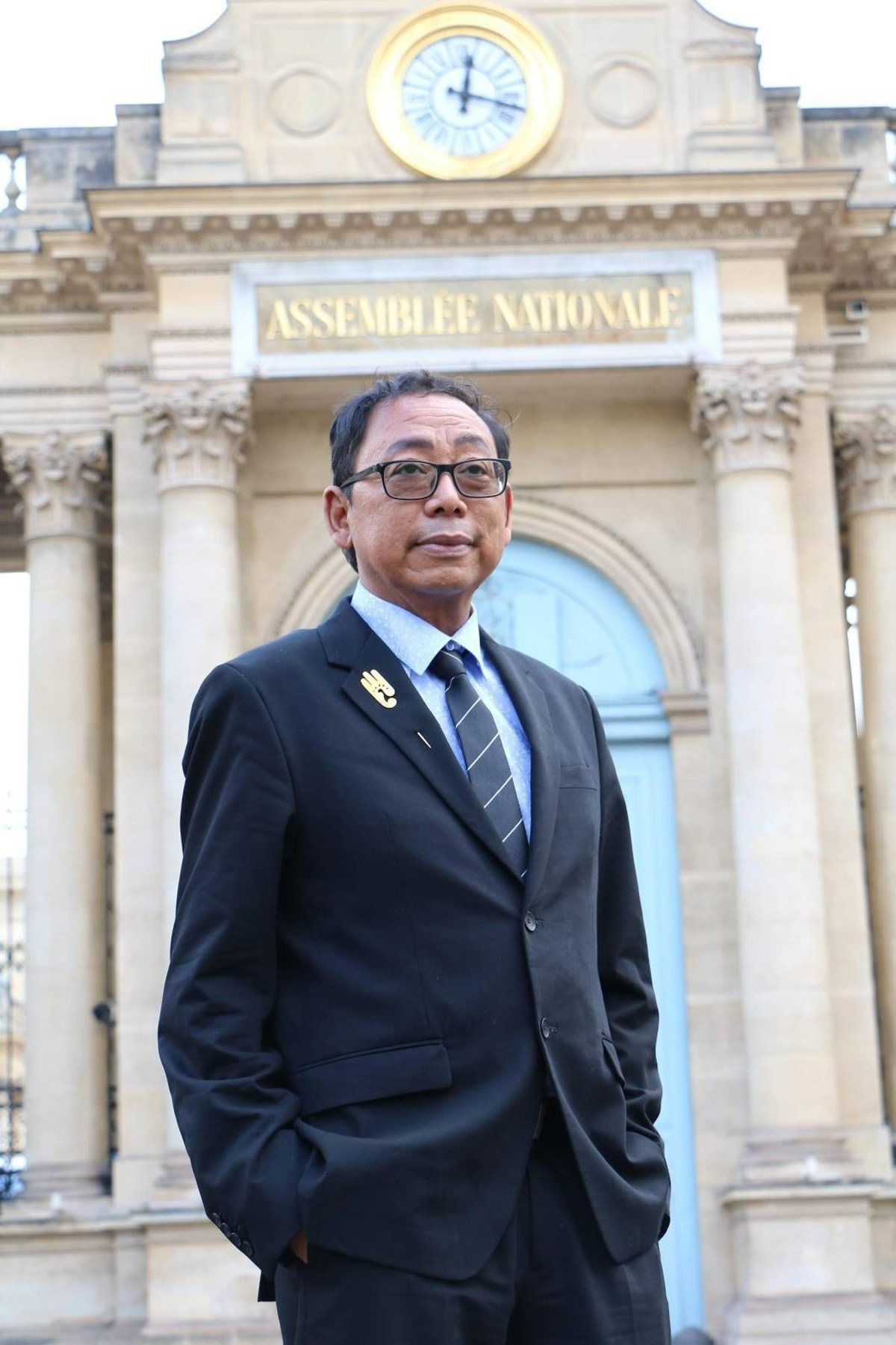
Human rights activist May Sabe Phyu during the webinar explained that Myanmar has a deeply patriarchal society that favors men over women.
Feminist organizations before the coup focused on shifting these entrenched gender norms. Their work involved unpacking and challenging gender stereotypes, aiming to create a more equal society where women, including lesbian, bisexual and queer women, could thrive without being limited by traditional expectations.
Aung Myo Min said the National Unity Government strives to be as inclusive as possible, even though it is in exile, and is making a conscious effort to represent and support the diverse communities of Myanmar, including the LGBTQ population.
“Myanmar has a very diverse ethnicity,” said Aung Myo Min. “You can see the composition of the NUG. We have members who are winners of the election, some are nominated from ethnic groups. I came from a civil society background. I was an openly gay man, one of the first openly gay men from the 1980 movement. So having me as Union Minister is such a progressive and inclusiveness of the LGBTQ people in the government. This is the result of decades longs struggle of LGBTQ people.”
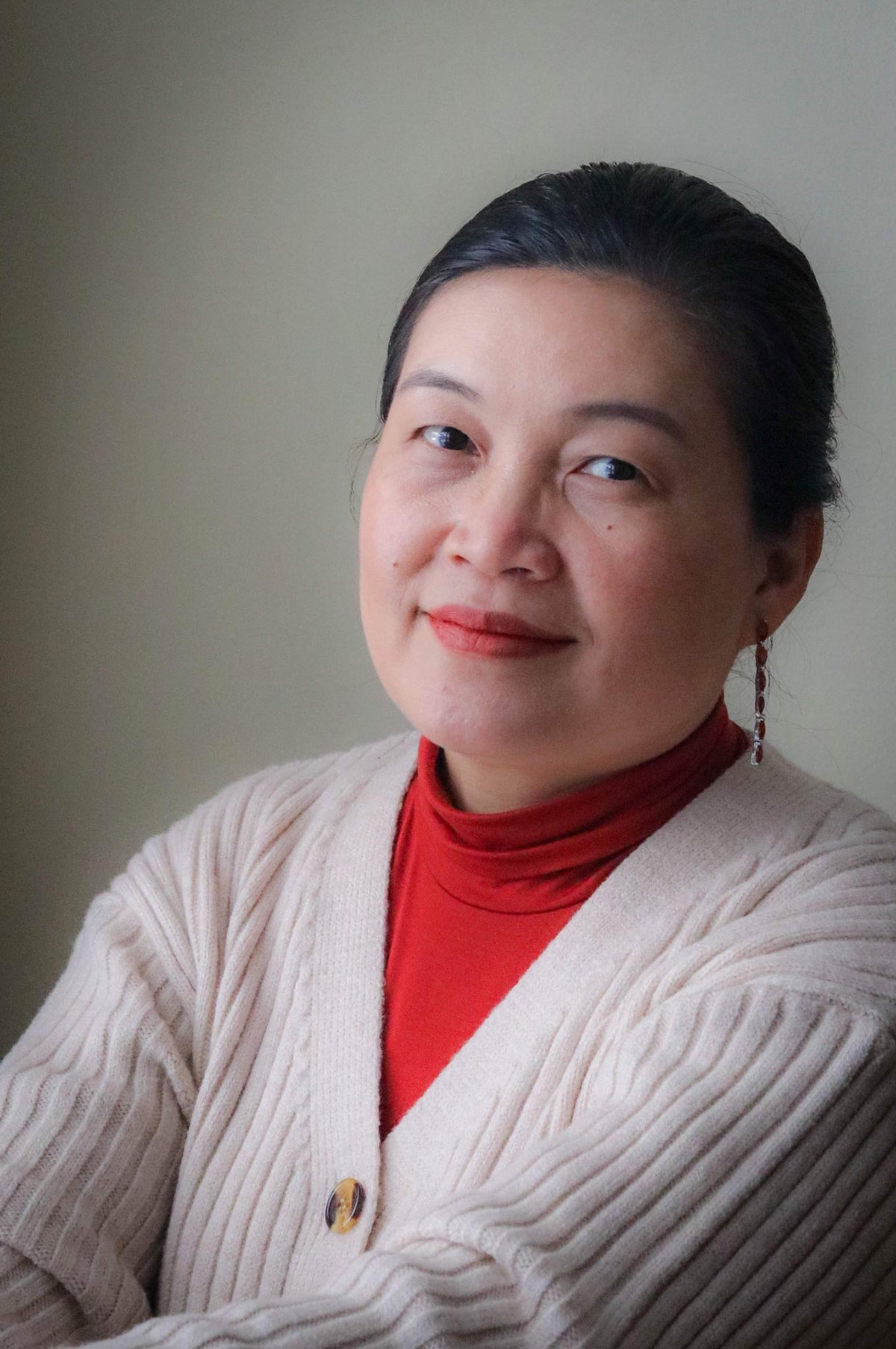
Sai Kham La (a pseudonym), an LGBTQ activist working from exile in Thailand, emphasized the importance of continuing the fight for LGBTQ rights and broader human rights.
Speaking from his experience in exile, he highlighted that despite the challenges, it remains crucial to persist in advocating for the LGBTQ community and ensuring their rights are upheld, even in the face of oppression and displacement.
“We have seen the impact of our work from those days,” said Sai Kham La. “The harder the oppression is, the greater the unity becomes. We were never this much united before.”
Senior Director of Law and Policy at Outright International Senior Director of Law and Policy Neela Ghoshal at the end of the webinar emphasized the severity of the situation for LGBTQ people under the junta.
“The harm LGBTQ people are facing under the junta is grave and pervasive,” she said.
Ankush Kumar is a reporter who has covered many stories for Washington and Los Angeles Blades from Iran, India, and Singapore. He recently reported for the Daily Beast. He can be reached at [email protected]. He is on Twitter at @mohitkopinion.

Myanmar
LGBTQ+ advocacy group joins Myanmar earthquake relief effort
March 28 quake killed thousands, devastated country’s second-largest city

A powerful earthquake that rocked Myanmar on March 28 unleashed devastation across the central part of the country.
The U.S. Geological Survey measured the quake at 7.7, and pinpointing its epicenter roughly 10 miles west of Mandalay, the country’s second-largest city. A 6.4-magnitude aftershock jolted the area 12 minutes later, compounding the destruction and deepening the crisis for a nation already strained by conflict.
The earthquake struck with terrifying intensity near its epicenter, wreaking havoc on Mandalay and the nearby city of Sagaing.
Mandalay, a bustling city of approximately 1.5 million residents, bore the brunt of the destruction. Among the most striking losses was the 12-story Sky Villa Condominium, which collapsed, leaving scores trapped beneath the wreckage. Rescue workers scrambled to pull survivors from the rubble, but the rising death toll underscored the tragedy’s magnitude.
In Sagaing, which is located closer to the epicenter, more than 70 percent of buildings sustained damage. The Ava Bridge, an essential artery spanning the Irrawaddy River, collapsed, cutting off a critical connection to Mandalay. The earthquake’s shallow depth of less than seven miles amplified its power, reducing homes, temples, and schools to rubble.
The earthquake’s death toll continues to climb, with at least 3,649 confirmed dead, more than 5,000 injured, and approximately 145 people missing. Amid the widespread devastation, questions loom about the impact on vulnerable populations. The Los Angeles Blade reached out to Colors Rainbow, an organization advocating for LGBTQ+ rights in Myanmar, to understand how the crisis has affected one of the nation’s most marginalized communities.
Colors Rainbow Executive Director Hla Myat Tun spoke about how his organization is working to address the crisis faced by Myanmar’s LGBTQ+ community in the aftermath of the earthquake.
Colors Rainbow has implemented a system of multipurpose cash transfers, directing funds to local LGBTQ+ partner organizations. These grassroots partners, in turn, provide essential support to affected individuals that includes emergency cash assistance, food, non-food items, clean water, and basic emotional support tailored to the immediate needs of their communities.
“We estimate that around 500–800 LGBTQ individuals have been impacted in the affected areas, particularly in Mandalay Region, Sagaing Region, and southern Shan state,” said Hla Myat Tun. “So far, we have been able to directly assist around 80–100 LGBTQ individuals.”
Hla Myat Tun told the Blade that Colors Rainbow is actively gathering data to assess the specific challenges that LGBTQ+ people are facing in the aftermath of the earthquake.
Preliminary observations, he noted, point to heightened vulnerability among LGBTQ+ people, driven by social exclusion and limited access to mainstream humanitarian aid. Hla Myat Tun, however, emphasized more comprehensive information is necessary to fully understand the scope of their needs and vulnerabilities in this crisis.
“We are partnering with international LGBTQ and feminist organizations that focus on displaced communities,” said Hla Myat Tun. “These partners provide emergency funds, and we coordinate with local LGBTQ groups to deliver aid directly to affected individuals on the ground.”
Addressing reports of military restrictions on humanitarian aid, Hla Myat Tun explained how Colors Rainbow is managing to reach LGBTQ+ people who are in conflict zones and areas the military junta controls. Hla Myat Tun highlighted the importance of the organization’s trusted local LGBTQ+ partners, who are embedded in these regions. Their presence and established networks, he said, are vital in navigating restricted areas and ensuring that aid reaches the LGBTQ+ people who are most in need.
Hla Myat Tun also provided insight into how Colors Rainbow is tailoring its relief efforts to meet the LGBTQ+ community’s specific needs.
He said his organization is gathering information directly from LGBTQ+ people through close coordination with its local partners, relying on both formal and informal communication channels. Hla Myat Tun told the Blade his team conducts daily check-ins via quick telephone calls, ensuring a continuous flow of information to guide their response efforts despite limited internet access, electricity and other challenges.
“Our approach is collaborative — we set strategies and share responsibilities to respond flexibly and safely, based on the rapidly changing local context,” he said. “Personal stories are being documented, but for security reasons, we are cautious about sharing them publicly.”
When asked whether staff or volunteers had harassment, discrimination, or violence while delivering aid — a concern given the precarious legal and social climate for LGBTQ+ people in Myanmar — Hla Myat Tun said there have been no reported incidents thus far.
“So far, we haven’t received any reports from our staff or local partners about harassment or violence while delivering aid,” he noted, emphasizing Colors Rainbow remains vigilant and has implemented robust safety protocols to protect all involved.
Colors Rainbow relies primarily on funding from international LGBTQ+-focused partners. He noted, however, humanitarian funding specifically dedicated to LGBTQ+ communities remains vastly under-resourced, relative to the pressing needs on the ground. Hla Myat Tun said this shortfall severely limits the scale and reach of Colors Rainbow’s efforts.
“While Myanmar’s legal framework remains outdated, societal attitudes — especially during the civilian government — have shown signs of progress,” said Hla Myat Tun. “We have seen positive change thanks to the work of local LGBTQ organizations.”
“In the current crisis, many communities are working together despite legal barriers. However, in areas without LGBTQ-led organizations, inclusive humanitarian responses are still lacking,” he added. “There’s an urgent need for international humanitarian actors to understand and implement LGBTQ-inclusive practices in Myanmar.”
When asked about long-term strategies to support the recovery and resilience of LGBTQ+ communities as Myanmar rebuilds, Hla Myat Tun affirmed Colors Rainbow is deeply committed to fostering resilience. The organization’s initiatives include leadership development, community empowerment through training and workshops, sub-granting programs, and organizational development support. He also highlighted Colors Rainbow’s advocacy for LGBTQ+-inclusive policies and collaboration with ethnic groups to promote an inclusive federal democracy, and specifically thanked Outright International, a global LGBTQ+ and intersex rights group, for “amplifying our work.
“This kind of international attention shines a spotlight on the challenges LGBTQ communities in Myanmar are facing and helps open doors for more support,” Hla Myat Tun told the Blade. “It also boosts visibility and solidarity, both locally and globally, which we deeply appreciate.”
-

 California1 day ago
California1 day agoHate crimes targeting transgender and gender nonconforming people have tripled since 2013
-

 Books3 days ago
Books3 days ago‘Dogs of Venice’ looks at love lost and rediscovered
-

 Crime & Justice4 days ago
Crime & Justice4 days agoSan Fernando Valley LGBTQ+ community center Somos Familia Valle is trying to rebuild from a “traumatizing” break-in
-
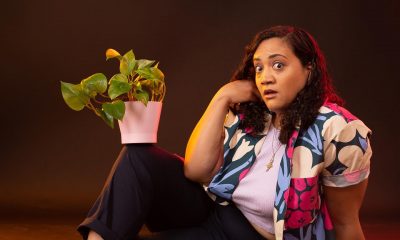
 a&e features2 days ago
a&e features2 days agoAllison Reese’s advice? Take your comedic medicine.
-
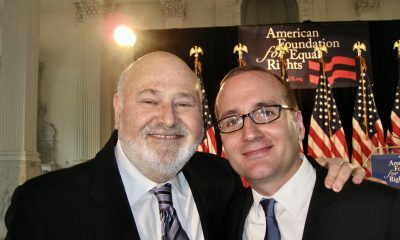
 COMMENTARY4 hours ago
COMMENTARY4 hours agoWhy Rob Reiner’s murder hit this old lesbian hippie so hard
-
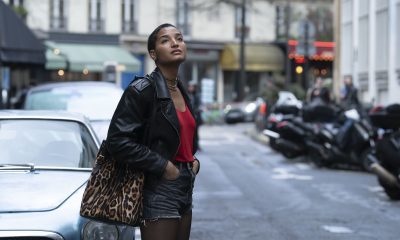
 a&e features3 hours ago
a&e features3 hours agoIndya Moore on history-making Gotham Award nomination and speaking out on social media: “It has complicated my access to work”




